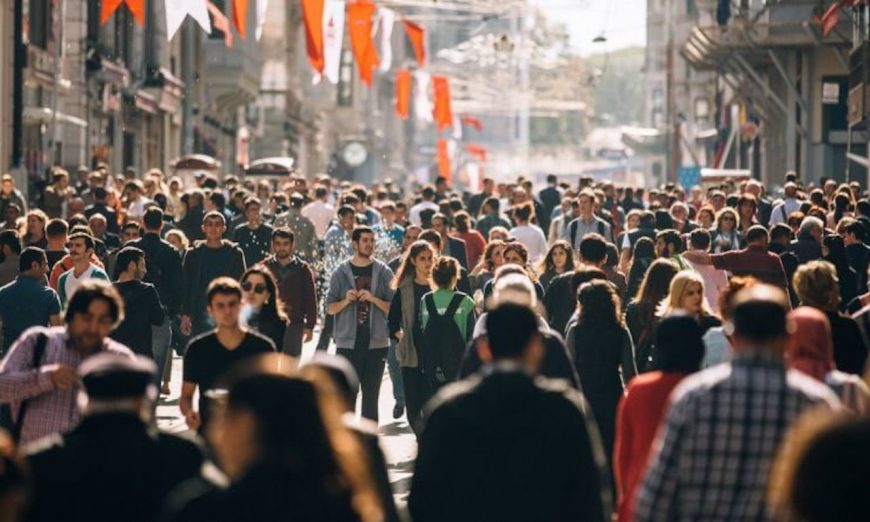Blood on their hands
Let us start with a little bit of background. In Turkey we have had an armed conflict between the outlawed pro-Kurdish Kurdistan Workers’ Party (PKK) and security forces for more than three decades. After some stages, some elements within the state decided that the best way to deal with the PKK was to talk to it in “its own language.” So, starting from the late ’80s, the state started to use covert counter-guerilla structures in this conflict. JİTEM (Gendarmerie Intelligence and Anti-Terrorism Organization) is one of them, and it is notorious in the Southeast for the atrocities it carried out, not just against PKK members but also civilians. JİTEM was established within the gendarmerie, and its existence has never been acknowledged officially. But it is well known for its brutal abduction and extrajudicial killing methods. Many of these cases have reached the European Court of Human Rights and have resulted in serious verdicts of human rights violations.
I happened to be in some of those cases at the European Court of Human Rights as the lawyer of the persecuted Kurds. Some informants who were former PKK members recruited by JİTEM after their capture came forward and gave extremely detailed accounts of JİTEM’s crimes. Today 17,500 extrajudicial killings have been attributed to this structure, and it is known that it also played an important role in the forced evacuations of more than 3,000 Kurdish villages in the Southeast.
In fact JİTEM was active throughout the whole country, and it kidnapped Kurdish businessmen, intellectuals, politicians or any other Kurdish people who were suspected of being in contact with the PKK. No one has ever returned after being kidnapped by this organization. It descended upon the region like a nightmare. Everyone, even children, knew its name and the names of its “prominent” figures.
Where are the Kurds?
And lo and behold! Today some founders and leading figures of JİTEM are suspects in the Ergenekon case, and they are under arrest. Let us assume that, as some allege, Ergenekon is just a fabricated case. Even then, the Ergenekon case should mean something to the Kurds. The untouchables who destroyed their lives, who took the lives of their loved ones barbarically way, are now on trial. This was unimaginable before. These people had never appeared before any court in Turkey. But they are now behind bars. And this must be a great relief for the Kurds.
But why, then, can we not see Kurds with placards in their hands demonstrating in front of Silivri Prison, where the Ergenekon suspects are being tried? Why can we not see Kurds supporting the court for judging these people for their actions as JİTEM commanders and executioners? Why is Kurdish civil society’s voice so weak about Ergenekon? These people suffered much at the hands of JİTEM, and now there is this historic opportunity to deliver justice, but we cannot see any victims around. There is something bizarre going on.
A few explanations
First of all, this situation shows us the tremendous level of control by the PKK over the Kurdish people. They somehow managed to keep the Kurds away from this case. But why does the PKK act in this way?
I think the PKK and other forces within the Kurdish movement see the Ergenekon case as a potential threat to their legitimacy. If the Ergenekon case is successful, then this will show everyone in Turkey that people can seek and redress their rights through peaceful means. In addition to that, of course, this case being successful will increase confidence in the Justice and Development Party (AK Party) government. It is a well-known fact that the PKK and the Kurdish movement see the AK Party as their only rival in the region.
The second and more subtle explanation may be the following: The PKK might be afraid that during this case some links between Ergenekon and themselves may be revealed. Tuncay Güney, who was the personal assistant of retired Gen. Veli Küçük, one of the prime suspects in the Ergenekon case, gave a detailed statement to police in the year 2000 — which was totally ignored at the time — but which included a stunning allegation: Ergenekon stole 6,000 weapons from a Kırıkkale weapons factory and delivered them to Kurdish groups, including members of the PKK in northern Iraq. Güney also interpreted this incident as a possible explanation for the bombing of this factory and the mysterious killing of Uğur Mumcu, a prominent journalist, and Eşref Bitlis, the gendarmerie commander. According to Güney’s statements, Mumcu was about to reveal the dirty trade between the PKK and JİTEM, and Bitlis was in opposition and fighting against this organization; consequently, both of them lost their lives. Güney also alleged that Küçük had direct and indirect connections with Ergenekon.
Alliance with the devil
If these explanations are valid, then they tell us very problematic things about the leaders of the Kurdish movement. They are apparently not interested in the solution of the Kurdish question, unless it will give them a political advantage. And if they see no political advantage, they might prefer to support the status quo and even ally with the devil — in this case: Ergenekon.
So do you think the Kurds really want justice?
http://www.todayszaman.com/tz-web/yazarDetay.do?haberno=176610

